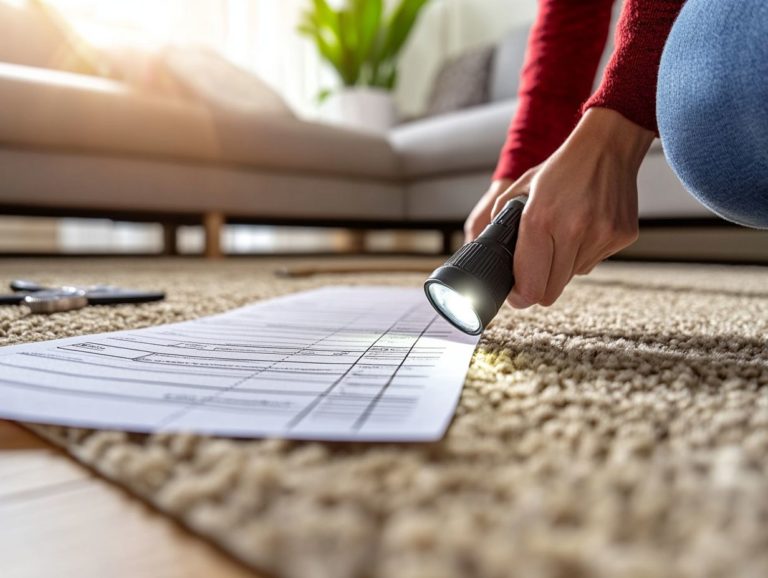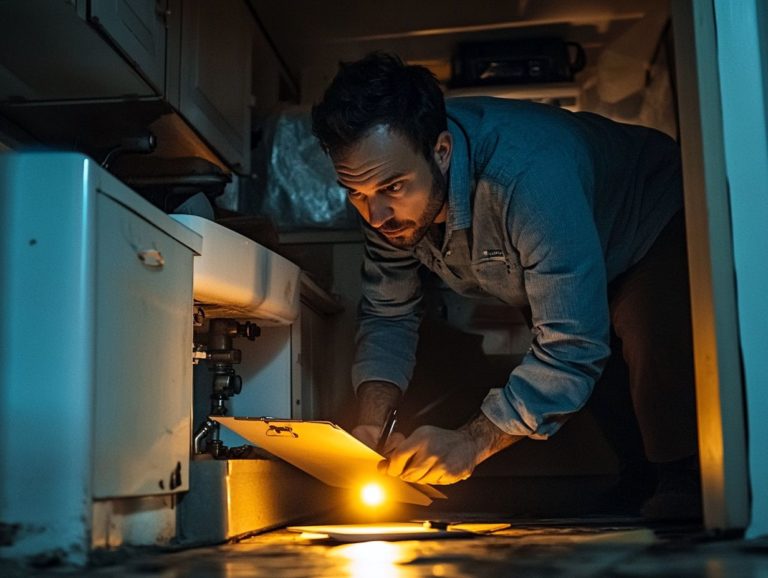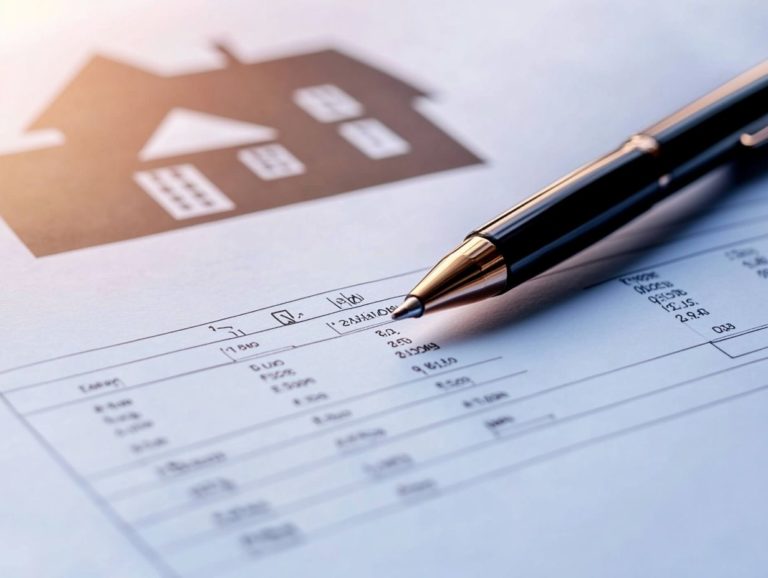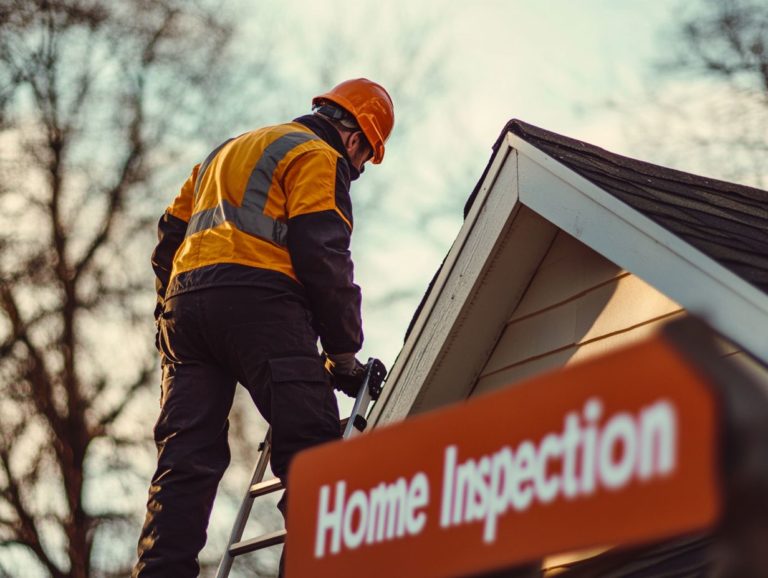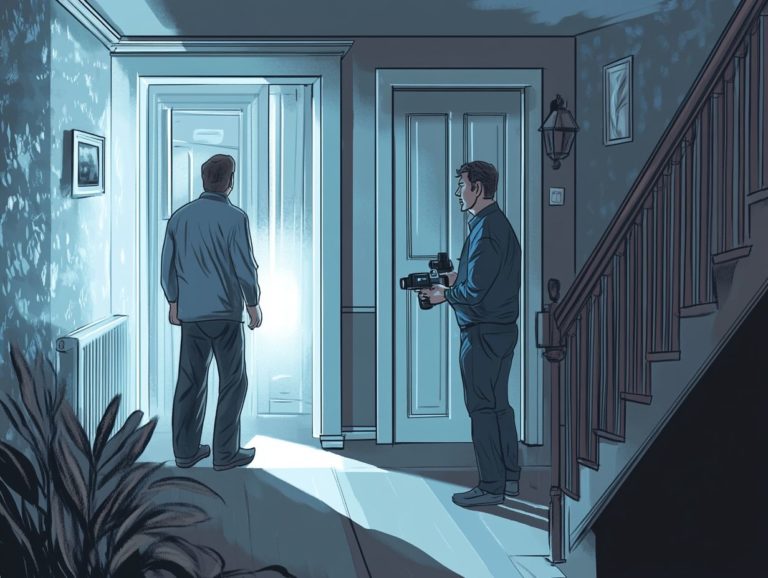Understanding Home Inspection Cost Factors
When you are embarking on the journey of buying or selling a home, a thorough inspection becomes essential to ensure you are making a wise investment.
This article delves into the significance of home inspections, illuminating why they are indispensable for both buyers and sellers. It examines factors that can impact inspection costs, including property size and location, as well as the various types of inspections available to you.
You will find a breakdown of average costs, insights into regional variations, and practical tips to help you save. Whether you are a first-time buyer or a seasoned homeowner, grasping these elements can empower your next real estate decision.
Contents
- Key Takeaways:
- The Importance of Home Inspections
- Factors that Affect Home Inspection Cost
- Average Cost of Home Inspections
- Ways to Save on Home Inspection Costs
- Frequently Asked Questions
- Curious about home inspection costs? Here are some common questions answered!
- What factors influence home inspection costs?
- How does the size of a home impact the cost of a home inspection?
- Does the age of a home affect the cost of a home inspection?
- Do home inspection costs vary by location?
- What types of home inspections can affect the cost?
- How important is the experience and qualifications of a home inspector?
Key Takeaways:
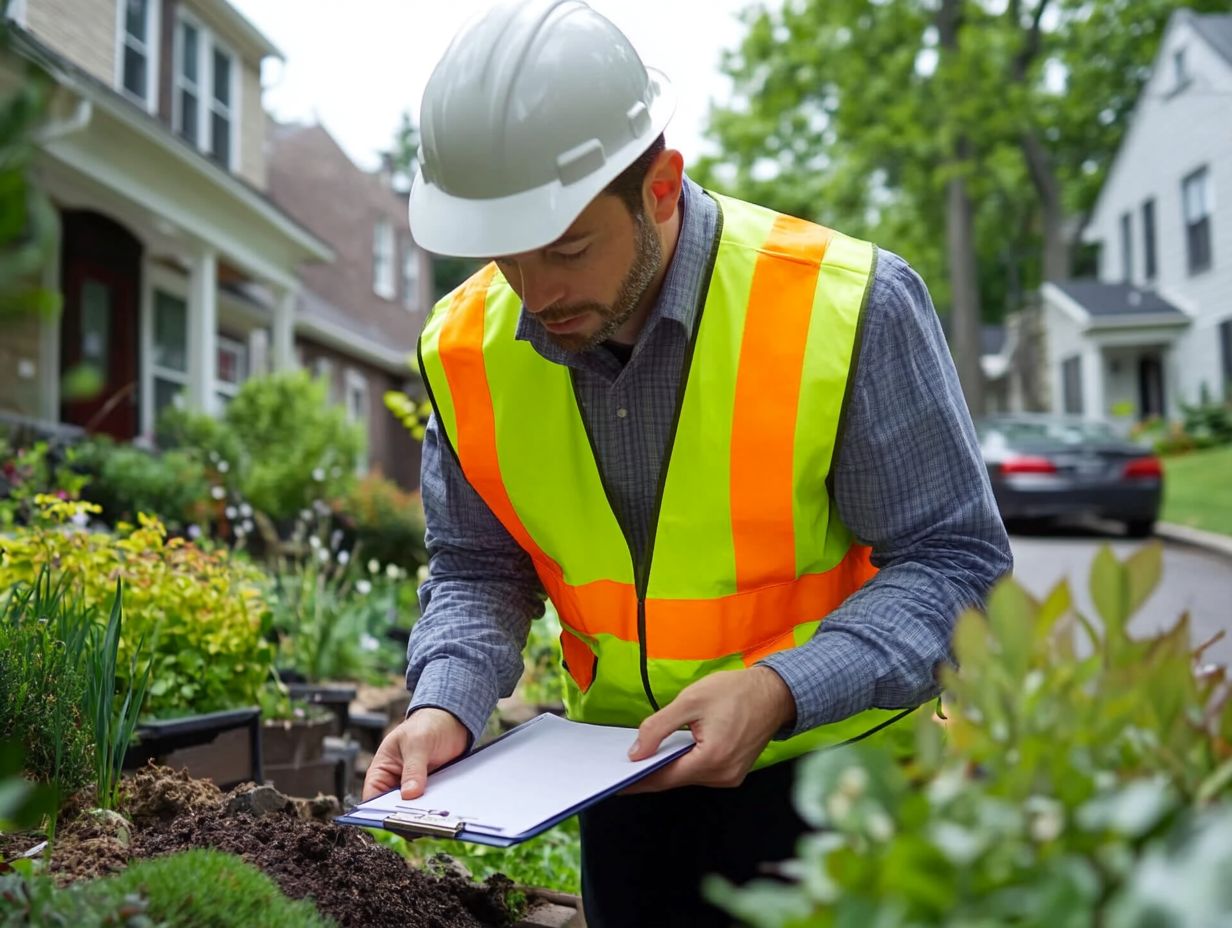
Don’t skip home inspections! They are vital for your safety and investment. The cost of a home inspection can vary depending on factors such as property size, location, and the type of inspection needed. Regional differences and the type of inspection required can significantly affect the average cost of a home inspection.
The Importance of Home Inspections
Home inspections are pivotal in the home buying journey. They provide a comprehensive assessment of a property’s condition. They reveal safety hazards and structural issues. These problems can affect your investment.
For real estate professionals, arranging these inspections is vital it enables you to help clients make informed decisions throughout the purchasing process. By doing so, you not only enhance customer satisfaction but also build trust within the industry.
Why You Should Get a Home Inspection
Getting a home inspection is absolutely essential for you as a homebuyer. It allows you to uncover hidden issues within the property that might not be obvious during a casual walkthrough.
By enlisting a professional home inspector, you gain access to a comprehensive evaluation of the property. This means looking closely at important parts like the foundation, roof, plumbing, and electrical systems.
Such a detailed assessment does more than just highlight any potential concerns; it also gives you a clearer picture of the overall condition of the home. Being well-informed about the state of the property enables you to make educated decisions, potentially saving you from unexpected repair costs in the future.
The inspection process acts as your safety net, ensuring that you invest in a home that aligns with your expectations and financial goals.
Factors that Affect Home Inspection Cost
Several factors influence the cost of home inspections, and understanding home inspection costs will enable you to budget effectively and make informed choices when selecting a home inspector.
- Size of the property
- Location of the property
- Prevailing market conditions
Key considerations include the size of the property, its location, and the prevailing market conditions, all of which can significantly affect the average inspection costs in various regions. Understanding these aspects will enhance your decision-making process, ensuring you choose wisely in your homebuying journey.
Size and Location of the Property
The size and location of a property play crucial roles in determining the overall cost of home inspections. Larger homes typically necessitate more extensive evaluations, while properties situated in urban environments, like New York City or Detroit, often command higher prices due to increased demand. For a deeper insight, check out understanding the cost breakdown of home inspections.
This dynamic means that inspecting a sprawling estate could take several hours, as you will need to thoroughly evaluate numerous rooms, systems, and potential issues. In contrast, a compact apartment might require only a couple of hours for inspection.
Location not only influences labor costs but also impacts the availability of qualified inspectors. For example, while a suburban home might present competitive inspection costs, properties in densely populated areas frequently face premium pricing, driven by the higher concentration of real estate professionals. To navigate these expenses, it’s important to grasp understanding home inspection fees.
Understanding how these factors interplay is essential, as a detailed property evaluation can vary significantly from one situation to another.
To enhance your homebuying experience, don t hesitate to schedule a home inspection with a trusted professional today!
Type of Inspection Needed
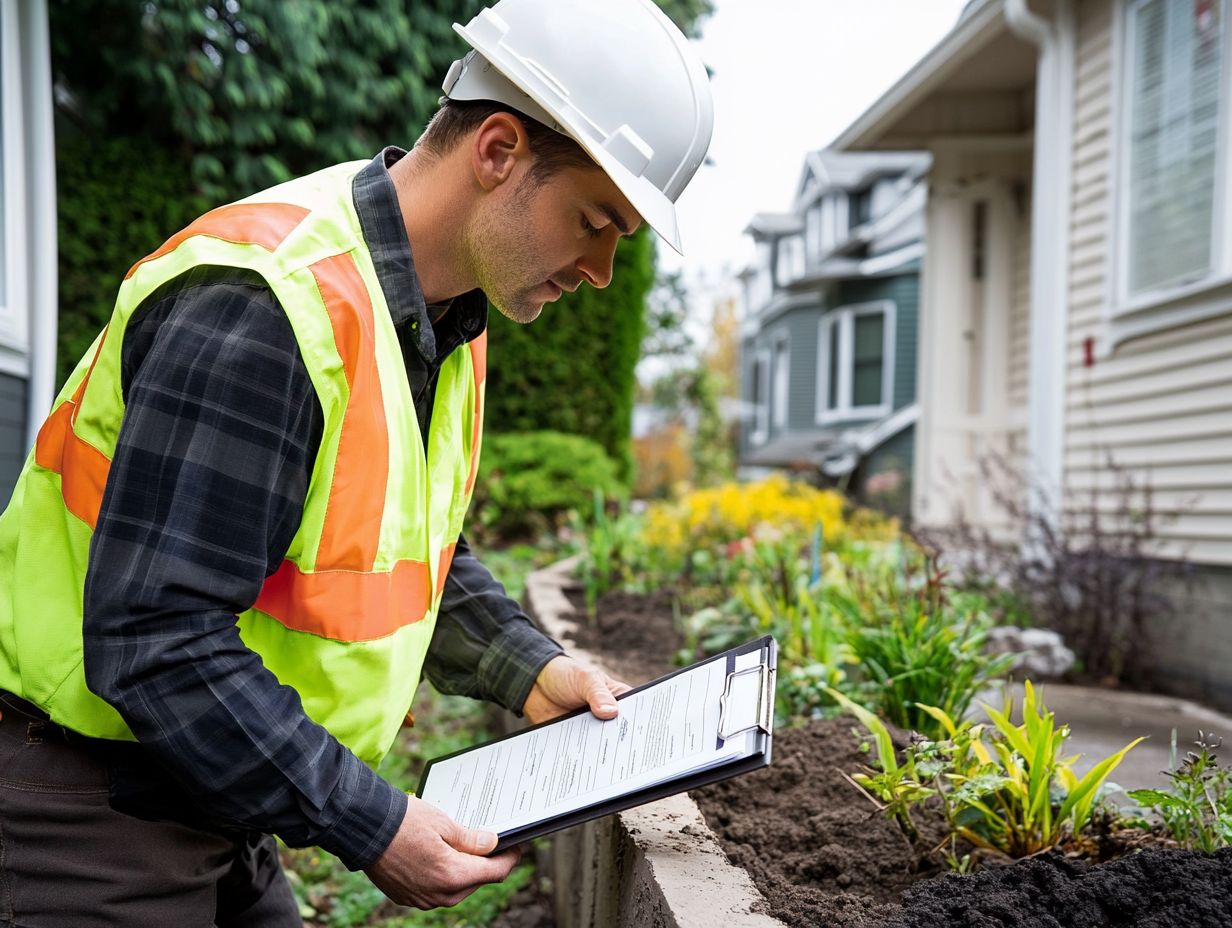
Different types of home inspections can lead to varying costs based on the specific systems being evaluated think heating and cooling systems, plumbing, or electrical systems. You may also choose to request additional services.
Beyond these general assessments, you might want to consider specialized inspections to guarantee that the property is safe and sound. For instance, pest inspections can uncover issues with termites or other infestations that could compromise the stability of your future home.
You should also consider inspections for environmental hazards like radon, a colorless and odorless gas, or lead paint, which can be dangerous. These hazards are especially important in older properties where these risks are more likely to be present.
Ultimately, understanding the full spectrum of inspection options enables you to make informed decisions. By investing wisely, you ll be safeguarding your future in your new home.
Additional Services
Additional services during a home inspection can significantly impact the overall cost. Specialized evaluations for structural integrity, safety hazards, or environmental concerns often demand more time and expertise.
For instance, radon testing is essential for assessing potential health risks from this gas that can accumulate in homes. If you’re considering a property, this evaluation is a crucial step in protecting your health.
Lead paint inspections are equally vital for homes built before 1978. They ensure the safety of everyone living there, particularly young children. Don’t wait make sure your future home is safe for your loved ones!
Mold assessments also play a critical role in the inspection process. They help identify hidden issues that could cause serious health problems or property damage.
By incorporating these additional services, the inspection offers you peace of mind and prepares you for any necessary remediation efforts. Ultimately, this enhances the safety and livability of your home.
Average Cost of Home Inspections
The average cost of home inspections can fluctuate significantly depending on various factors, including regional differences and the specific services you choose as a homebuyer. By grasping these variations, you can effectively budget for this essential part of the home purchasing process.
Regional Differences
Regional differences significantly influence the average cost of home inspections. Bustling locations like New York City typically command higher rates compared to cities like Detroit.
In New York, the average inspection cost can soar to around $500 or more. This is driven by the dense urban environment and a competitive housing market that pushes prices upward.
On the flip side, in Detroit, where the housing market has faced notable challenges, you can expect inspection fees to start around $300. This stark contrast vividly illustrates how geographic and economic factors shape pricing structures.
As a future homeowner, you’ll want to dive into local rates and understand the influences behind the cost of home inspections in your specific region.
Cost Breakdown for Different Types of Inspections
A cost breakdown for various types of inspections reveals that specialized evaluations often come with distinct fees. The average cost can vary significantly based on the inspection type you request whether it s for heating and cooling systems, plumbing, or electrical inspections.
A general home inspection typically ranges from $300 to $500, but specialized inspections can drive costs up considerably.
- An HVAC inspection, essential for keeping your heating and cooling systems in top shape, can run between $100 and $300.
- Plumbing inspections, focusing on the integrity of your pipes and fixtures, usually cost between $150 and $350.
- An electrical inspection, vital for spotting potential fire hazards, may set you back around $200 to $400.
As you assess these costs, it s important to weigh the benefits against the expense. These inspections can reveal issues that, if left unaddressed, could lead to significant repair bills down the line.
Ways to Save on Home Inspection Costs
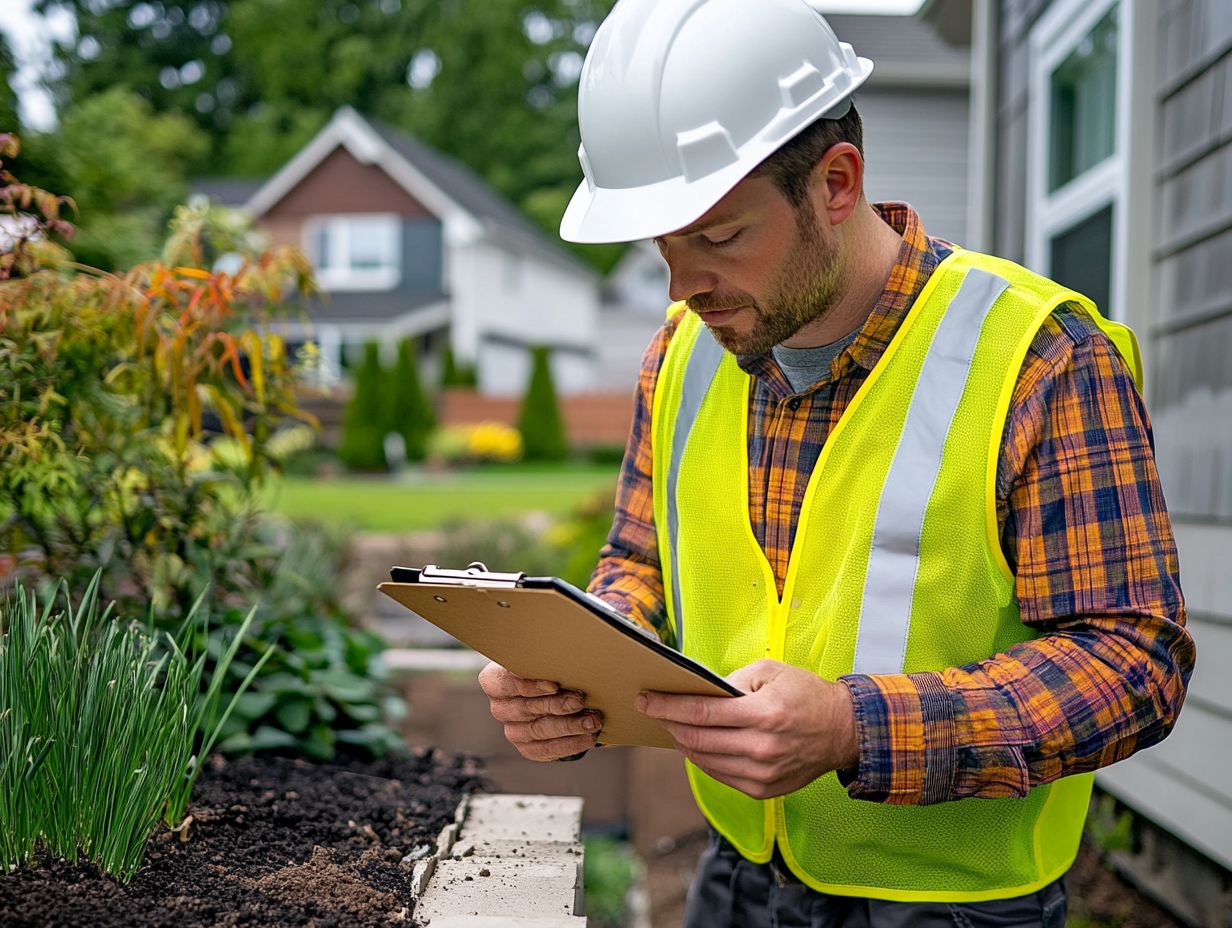
Homebuyers have various strategies to conserve on home inspection costs. Consider negotiating with the inspector for a better rate or explore combining services to maximize value.
You might even opt for a DIY pre-inspection to spot any immediate concerns before bringing in a professional. This proactive step can save you big bucks and give you confidence in your buying decision!
Negotiating with the Inspector
Negotiating with the home inspector can lead to substantial savings for you as a homebuyer, as many inspectors are open to discussing their rates or offering discounts based on the services you need.
When you approach this conversation, having a clear understanding of the necessary inspections puts you in a strong position to explore options.
For instance, requesting a detailed cost breakdown lets you see exactly where your money is going and highlights potential areas for savings.
Don t hesitate to ask about bundle packages where multiple inspections are performed simultaneously at a reduced overall rate because this can lead to significant savings.
Engaging inspectors in a friendly dialogue while demonstrating your serious intent can often result in more favorable terms. Ultimately, this approach can make the homebuying process more affordable and less stressful.
Combining Services
Combining services during a home inspection can lead to substantial cost savings, as many inspectors provide bundled packages that include additional offerings, such as pest inspection and radon testing, often at a lower rate.
By choosing these packages, you re streamlining your inspection process and ensuring a comprehensive evaluation of your property without straining your budget.
A typical service bundle might pair a thorough home inspection with a termite inspection, usually available at a discounted price compared to scheduling them individually. This strategy alleviates financial stress and saves you time, allowing inspectors to perform multiple assessments in a single visit, thereby enhancing overall efficiency.
In the end, taking advantage of combined inspection services offers you peace of mind, knowing that all critical areas of concern are being addressed simultaneously.
DIY Pre-Inspection
A DIY pre-inspection can be your secret weapon as a homebuyer, helping you spot potential issues before you bring in a professional inspector. This proactive step can significantly save costs and better prepare you for the formal evaluation.
By taking the initiative to assess the property’s condition, you can uncover hidden problems that might complicate negotiations later. Start by checking crucial areas like the roof, foundation, plumbing, and electrical systems.
Look for signs of water damage, mold, or cracks in the walls these could indicate larger issues that might require expensive repairs in the future.
Noticing outdated fixtures or appliances can give you valuable negotiation leverage. Understanding the overall maintenance needs of the home will also prepare you for future expenses. This proactive approach not only empowers you as a homebuyer but also sets the stage for well-informed decisions down the line.
Frequently Asked Questions
Curious about home inspection costs? Here are some common questions answered!
What factors influence home inspection costs?
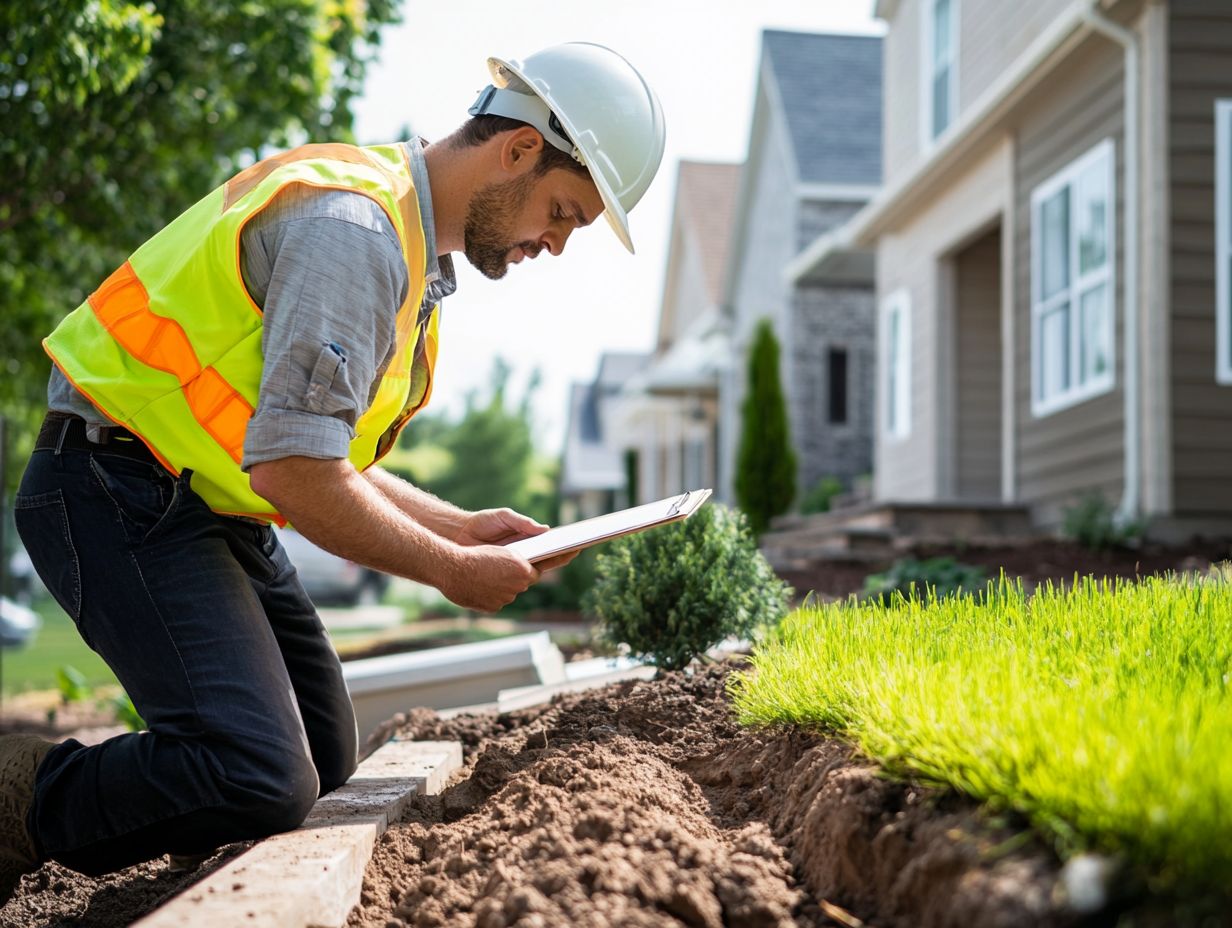
The main factors that can impact home inspection costs include the size and age of the home, the location of the property, the type of inspection being performed, and the experience and qualifications of the inspector. For a deeper insight into these aspects, check out understanding home inspection fees and costs.
How does the size of a home impact the cost of a home inspection?
The size of a home typically affects the cost of a home inspection because larger homes require more time and resources to thoroughly inspect. Therefore, a larger home will likely have a higher inspection cost compared to a smaller home.
Does the age of a home affect the cost of a home inspection?
Yes, the age of a home can definitely impact the cost of a home inspection. Older homes may require more in-depth and specialized inspections due to potential wear and tear, which can increase the cost of the inspection.
Do home inspection costs vary by location?
Yes, home inspection costs can vary by location. In areas with a high cost of living, inspectors may charge more due to the increased expenses.
Homes in different regions may also have varying construction materials and building codes. These factors can impact the cost of an inspection.
What types of home inspections can affect the cost?
The type of home inspection affects the cost significantly. A basic visual inspection may cost less than a thorough inspection that tests for radon or mold.
Additional services, such as termite inspections, pool inspections, and energy audits, can also raise the overall cost.
How important is the experience and qualifications of a home inspector?
The experience and qualifications of a home inspector can influence inspection costs. Experienced inspectors with certifications often charge higher fees due to their expertise.
However, prioritize an inspector s qualifications over cost. A thorough inspection can save you money by identifying potential issues with the home!


